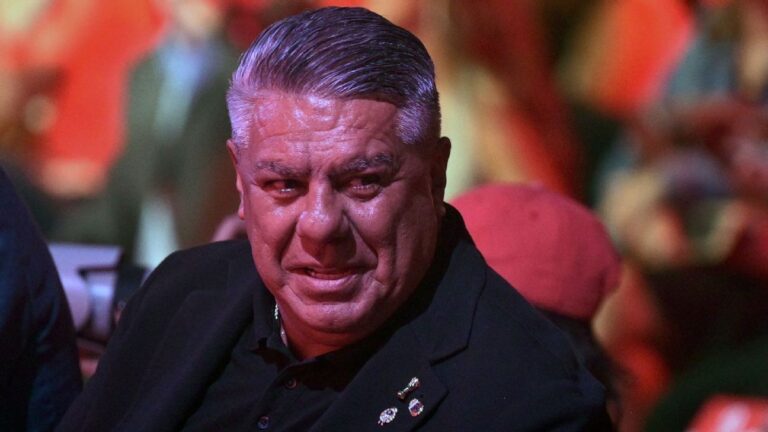The Matildas stand on the edge of Australian footballing history.
For the fourth time Australia have reached the quarterfinals of the Women’s World Cup. They have never progressed beyond that stage. But they have also never reached this point in the fashion they have. It’s never felt like this before.
The Matildas’ win over Canada was fueled by pure, unbridled emotion — the anger and devastation of the loss to Nigeria contorting into fear and hope for fans, and a backs-against-the-wall, underdog mentality for the players.
But a week between the end of the group stage and the beginning of the round of 16 meant that extreme emotions were unsustainable. And while the feelings post-Nigeria and either side of the Canada result were easy to identify, the feeling in the leadup to the Denmark clash was much harder to place.
A return to the round of 16. A date with Denmark. The threat of Pernille Harder. A Sam Kerr-less team. But a team that had put four goals past the Olympic champions. No feeling quite felt like it fit.
Now with hindsight, the feeling present throughout the buildup was calmness. It couldn’t be placed earlier in the week because the Matildas had never had a run-in to knockout match that elicited that kind of response.
The resounding nature of the Canada win was cause for optimism. This was only aided by finishing top of the group and setting up a date with the second-ranked team in Group D rather than the winners.
– Women’s World Cup: Home | Squads | Fixtures | Podcast
Fans looked at this knockout match and quietly thought to themselves “we should win that.” But it felt dangerous, almost arrogant, to do so because favouritism in a knockout World Cup match against European opposition was a foreign concept to Australia.
Plus, “should win” games had long been a pitfall for the Matildas. Expectations and output got lost in translation and led to frustration.
But based on all the surface-level facts, the Matildas should have won this game. And Monday’s 2-0 win was a should-have performance.
It was mature and measured and calm and professional. It was fueled by a different kind of belief to the Canada match but a no less powerful one at that. It was an internal belief buoyed, not hampered, by 75,784 people in the stands and an average audience of 3.56 million tuning in on TV.
Denmark looked more dominant but did so without looking threatening. Australia appeared listless in the first half but were patient and clinical when their chances came. They made the most of two moments of brilliance — Mary Fowler’s turn and through-ball, and Caitlin Foord’s exceptional run and finish — to open the scoring.
Their second goal seemed inevitable. Kyra Cooney-Cross finding an unmarked Fowler at the top of the box could’ve been the source of the goal. So, too, Fowler dinking the ball to Emily van Egmond in the six-yard box. But it was Hayley Raso who finished after the lay off from Van Egmond for her third goal of the tournament.
It was a “tournament football” win, and that was what pleased head coach Tony Gustavsson postmatch.
“I’m stressing that tournament football is about playing the game in front of you, whatever that looks like, and finding a way,” Gustavsson said. “And this team has proven now that they can always find a way.”
Finding a way almost doesn’t do justice to the Matildas’ World Cup campaign so far because those details fade and fuzz in the immediate afterglow of a win. But Gustavsson remembered and lauded his team’s growth over the past two and half years to be able to reach this point.
“All that investment that we’ve done,” he said. “I think helped tremendously in all the challenges that have been thrown at this team from matchday minus one, when the tournament started against Ireland, and everything that they’ve gone through and the way they’ve handled it.”
How the team has managed Kerr’s absence, in particular, was made all the more special with her earning her first minutes of the tournament in the win.
That Kerr is now in a position to continue to be eased back into the tournament, to play a role off the bench, feels like a luxury Australia couldn’t afford at various times over the past three weeks.
That Australia were able to reach a World Cup quarterfinal without Kerr and do it in the way they did to boot, gives credibility to a previously unthinkable notion: Australia’s best World Cup run could come with limited involvement from Kerr.
There is perhaps no greater sign of this team’s maturity than the Kerr conundrum. A team that’s been accused of not being able to do it without her has been doing it just fine. And in doing so, the team has shaken off any mental shackles about a reliance on Kerr while also freeing up the skipper, a point Gustavsson expanded on.
“Also I think it helps Sam because what I think is important, if a team should be successful it can’t only rely on one player,” he said. “And I do not say this out of disrespect for Sam. You guys know how much I love working with Sam, and how much I say she’s the best forward in the world.
“But I think Sam coming back now could be a good thing in the sense that we don’t need to look at her taking over and having everything on her shoulders. It’s a team effort and a team tournament.”
Now the Matildas await the result of France vs. Morocco. Neither opponent feels insurmountable. And that in itself means the emotions leading into the quarterfinal will once again be hard to place.
Calm optimism feels no less weird after one week of practice. A second knockout win at the same tournament and a final-four berth are quite literally unprecedented for Australian football.
But it feels possible. More possible than it ever has.




